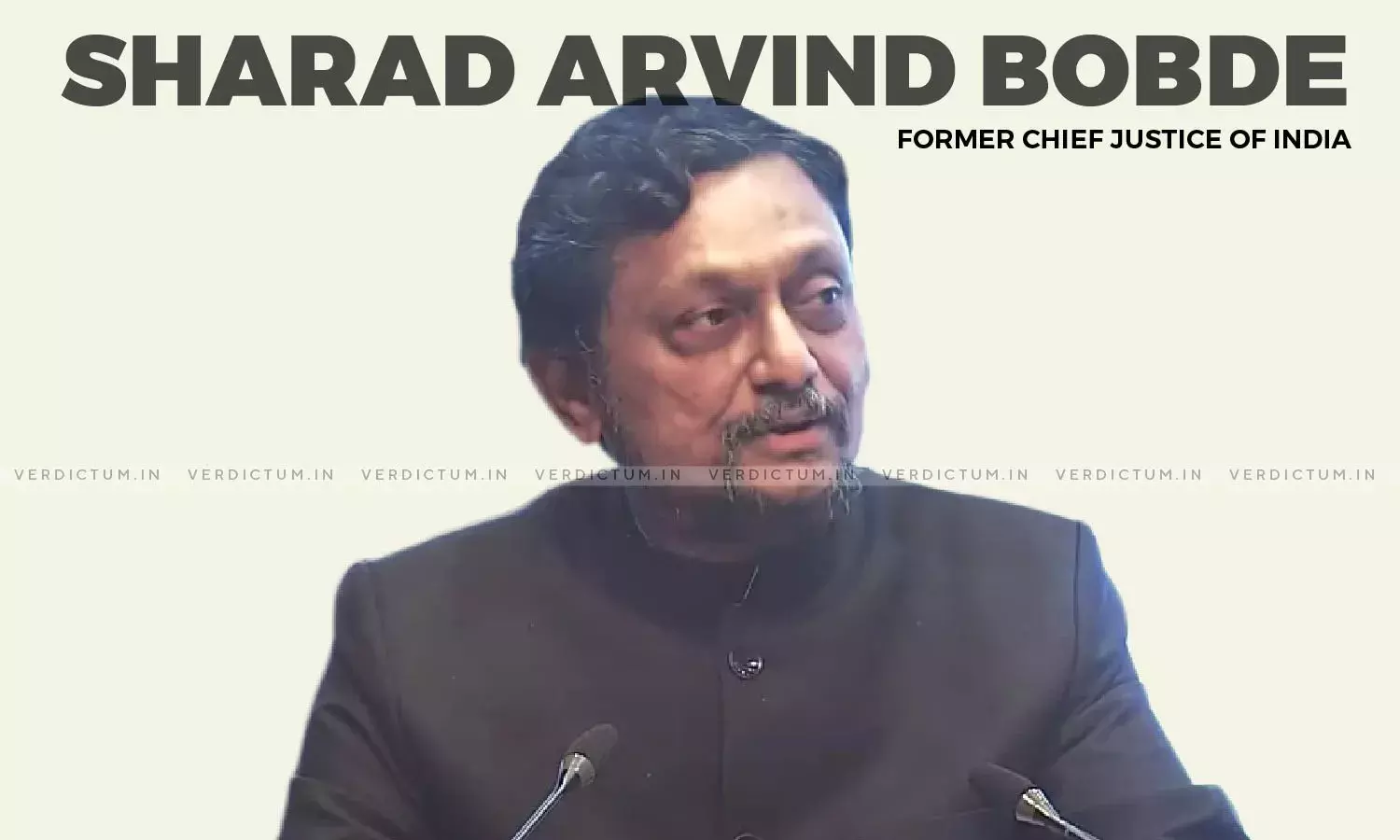Press Conference By Judges Was Most Unfortunate Even In History Of Supreme Court- Former CJI SA Bobde

Former Chief Justice of India Justice SA Bobde today said that the press conference held by four Supreme Court Judges in 2018 was "the most unfortunate incident in the history of the Supreme Court."
He was responding to a reference to the press conference while speaking at the India Today Conclave.
"That to my mind is one of the most unfortunate events in the history of the Supreme Court of India. I tried my best to see that it doesn't happen. I am saying this because some magazine has already written about my role there. I did try to bring about peace between the opposing points of view. ....It's an unfortunate event. ... I wouldn't have done it myself", Justice Bobde said.
Justice Bobde refused to respond to Dushyant Dave's allegations that the judges are scared of the Modi government. "I don't think I should respond to his views", he said.
Justice Bobde then went on to say, "I do not see any executive interference in the judicial process. I did not experience any... the way the executive can interfere is by having benches suitable to it in each case and that doesn't happen. The roster is prepared by the Chief Justice of India, independent of any pressures".
Habeas Corpus Petitions from J&K
On being asked about those who were arrested after the scrapping of Article 370 in J&K and the allegation that their Habeas Corpus petitions were kept pending, Justice Bobde said "I don't think they were kept pending deliberately as you people see it or anybody else sees it. One thing I must tell you in this context, I believe, and it is said to be a law of how the human mind works and that law is that a suspicious person always finds what he's looking for. It is true in the domestic front, it is true in politics, it is true in the executive, it is true in the media, it is true everywhere. You always find what you're looking for."
He also said that those matters arose during the pandemic and it was difficult to get the matters heard then.
Farmers' Agitation
On being asked about the staying of the farm laws, he said, "There was a law before us. There was a challenge to a law before us. We were seeking the government's response to the challenge. We were reading stories and watching stories on the television about people attacking each other, forces attacking each other, people jumping onto the Red Fort on the Republic Day. So many violent instances. I had stated to the government, why don't you consider withholding the laws because look at the consequence. There is a law on one side and there is large-scale violence on the other side. What is important right now and there was no response. So, I consulted my colleagues, and we were all of the unanimous opinion that this should be stayed. What's political about it?"
Collegium System
He said that there was not a single appointment of a supreme court judge during his term as the CJI because the Collegium was unable to arrive at a consensus. He said that there was nothing extraordinary about it and that there were longer periods in past without an elevation.
"Under the Constitution of India, there are three organs of government. The executive, the legislative and the Judiciary. They are separated in their functions and powers but they are not separated in their purpose and objectives. The objective of all three has to be the common objective set out in the Constitution, in the Preamble. I consider it perfectly legitimate that the executive has a vital interest in who is going to be a judge, Apart from the fact that they are the executive and one of the organs of government, they are also the largest litigant in any Court", he said.
Justice Bobde further said that "Now the problem is not that they have an interest in it. The problem is how to give effect to that interest".
He said that he does not support a system where the Executive has no say in the matter of the appointment of judges. He said that the Executive should not have a veto power and that the primacy of the opinion must be that of the judiciary.
He further concluded by saying that "I am saying that consultation with the executive can be made by the Chief Justice of India and the collegium, their views taken, but I believe the Primacy must remain with the Chief Justice or the Collegium. By Consultation, I do not mean concurrence."

